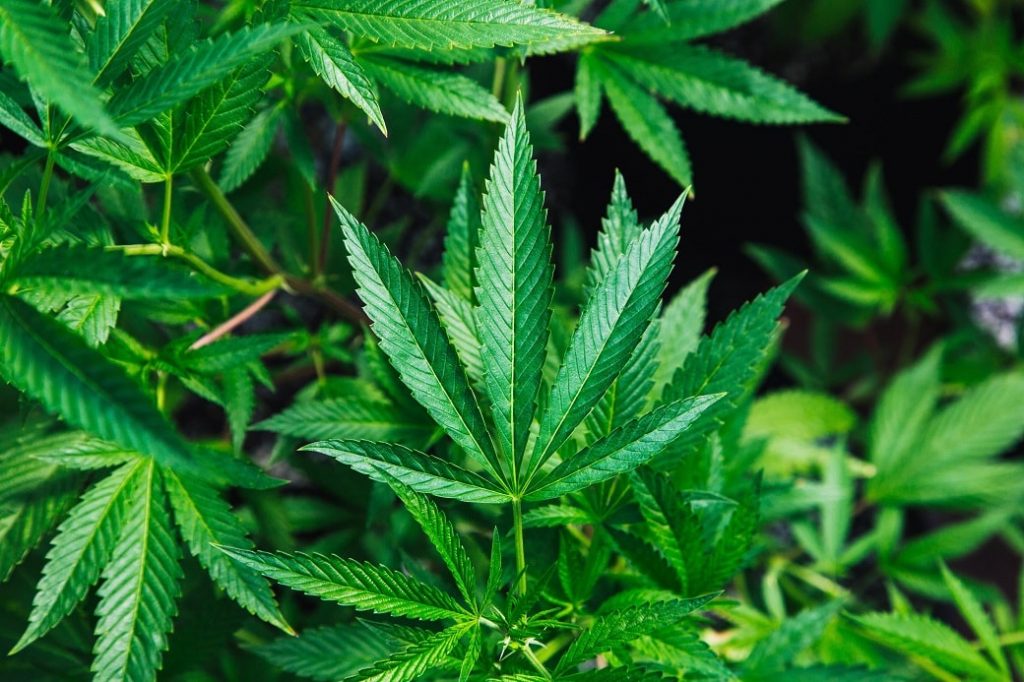One of the fastest growing sectors of the CBD market is CBD oil. It is often confused with other products, including hemp oil and even hempseed oil. These are all different things, each with their own benefits.
The difference between CBD oil and hemp oil comes down to what they are made from, levels of CBD and THC contained in the final product, as well as major disparities in terms of their therapeutic and/or nutritional uses.
To really understand the difference, you need to start with a basic understanding of their source plants, marijuana and hemp, so I will start there. If you just want to jump ahead, you can find an easy reference list of the difference between CBD and hemp oils here.
What’s the Difference Between Industrial Hemp and Marijuana?
Marijuana
Marijuana is one of many plants found in the Cannabaceae family. Other plants in Cannabaceae family include Humulus (a.k.a. hops) and Celtis (a.k.a. hackberries).
It is generally accepted that there are three main species of marijuana (although their exact classification is still a matter of debate in some circles): Sativa, Indica, and Ruderalis.
Most varieties of marijuana grown for medical or recreational use are hybrids that have genetic elements from more than one of these species. They are usually bred with an eye towards boosting THC and/or CBD levels present in the plant. In some cases, factors such as ease of cultivation indoors also play a role in selective breeding efforts.
Hemp: An Industrial Grade Strain of Cannabis
Now we turn to hemp. Hemp is a member of the cannabis family of plants, and its species name is Cannabis sativa.
So, hemp and marijuana are the same?
Sort of. The two most common species of marijuana are Sativa and Indica, and hemp is a member of the Sativa group. However, “hemp” refers to those varieties developed specifically for industrial applications.
Although there is more than one strain of cannabis that is referred to as hemp, the common variety used for industrial applications is Cannabis sativa L. subsp. sativa var. sativa.
Composition of Industrial Hemp
Hemp has very low levels of THC, in fact, it is tightly regulated to contain less than 0.3% THC under federal law in the United States.
On the other hand, hemp can be very high in the other cannabinoids found in this family of plants, many of which have surprising health benefits. As you might expect, different strains of hemp will have different levels of the hundreds of different kinds of cannabinoids found in cannabis.
Uses for Industrial Hemp
There are many applications for the use of hemp strains cultivated for industrial use.
- Textiles (including paper, fabric, cordage, carpet, insulation, and construction materials)
- Agriculture (including bedding and feed for livestock)
- Food (such as salad oil and baked goods)
- Nutritional supplements (often derived from hemp seeds rich in omega-6, omega-3, protein, vitamin E, phosphorous, potassium, iron, zinc, calcium and other nutrients)
- Body care products (including lotions, insect repellant, cosmetics)
- Landscaping (including specialized textiles, plant culture medium, mulch)
- Hemp Seed Oil
- Hemp Oil
Wait, isn’t this an article about the difference between Hemp Oil and CBD Oil?
Okay…we have all the building blocks in place. Now we can really understand the difference between CBD Oil and Hemp Oil. The following easy-reference guide covers the source, uses, and legality of the different oils.
CBD Marijuana Oil in a Nutshell:
- Derived from the whole plant of cannabis strains cultivated for recreational or medicinal use
- Federally controlled substance
- Illegal in most states, unless covered by laws that allow for recreational or medicinal (prescription only) use
- Has high levels of cannabinoids, and usually also has high levels of THC
- Usually it DOES have psychoactive properties
- Most research on the effectiveness of CBD for medical uses has been done on CBD oil derived from marijuana
CBD Hemp Oil in a Nutshell:
- Derived from the entire plant of industrial grade hemp
- Legal in all 50 states
- Only trace amounts, if any, THC, legally limited to no more than 0.3%
- Still can contain high levels of other cannabinoids found in hemp
- Does NOT have psychoactive properties
- Usually sold as a health supplement
- The health benefits are not as well researched as CBD marijuana oil, although many use it for it’s believed medicinal benefits
Hempseed Oil in a Nutshell:
- Derived from the seeds of industrial hemp
- Contains little to no THC or other CBDs
- Retains nutritional benefits including Omega-6 and Omega-3 fatty acids, high levels of fiber and protein, and rich in other nutrients such as calcium, iron and vitamin E
- Usually sold as food, such as Hemp Seed Salad Oil
- Legal in all 50 states
- Does NOT have psychoactive properties
Want to learn more about CBD Oil and Hemp Oil?
Consider bookmarking this site or subscribing to my newsletter. I am on a mission to help consumers find the best CBD products from trusted manufacturers, as well as getting the real research on CBD out there in language that everyone can understand.
Feel free to leave your comment below. Let’s get a conversation started about this important emerging health trend!
